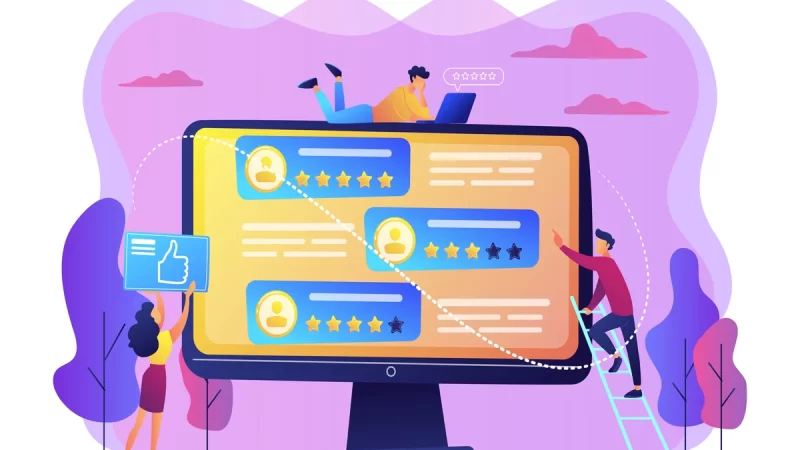An Ultimate Guide To Improve Lead Nurturing For B2B

Lead nurturing is a critical aspect of the B2B sales process, as it involves cultivating relationships with potential customers throughout their buying journey. Effective lead nurturing can significantly impact your conversion rates and ROI. In this ultimate guide, we will explore the key strategies and best practices to improve lead nurturing for B2B businesses.
The Importance of Lead Nurturing
Lead nurturing is not just about sending periodic emails and making follow-up calls. It’s a strategic process that helps build trust, credibility, and lasting relationships with your leads. Here’s why lead nurturing is essential for B2B success:
- Enhanced Conversion Rates: Nurtured leads are more likely to convert into paying customers. By providing relevant information and addressing their needs, you increase the chances of closing deals.
- Increased Customer Lifetime Value: Nurtured leads are more likely to become loyal customers who make repeat purchases and refer your business to others.
- Cost-Efficiency: Nurturing existing leads is often more cost-effective than acquiring new ones. It maximizes the value of your existing marketing and sales efforts.
Building a Lead Nurturing Strategy
To improve lead nurturing for B2B, you need a well-defined strategy. Here’s how to create one:
- Segment Your Audience: Not all leads are the same. Segment your leads based on factors like industry, company size, and their position in the buying cycle. This enables you to tailor your nurturing efforts to their specific needs.
- Personalize Your Communications: Generic messages won’t cut it. Use lead data to personalize your emails and content. Address their pain points and offer solutions that resonate with their needs.
- Use Marketing Automation: Marketing automation tools allow you to send the right message at the right time. Automate email sequences, lead scoring, and CRM integration to streamline your lead nurturing efforts.
Content is Key
Content plays a crucial role in lead nurturing. Here are some content strategies to consider:
- Educational Content: Offer whitepapers, webinars, and ebooks that address industry challenges. This positions your business as an authority and helps leads make informed decisions.
- Case Studies: Share success stories and case studies showcasing how your product or service has solved similar problems for other B2B companies.
- Personalized Recommendations: Provide personalized recommendations based on the lead’s behavior and preferences. This can be in the form of content or product suggestions.
Lead Scoring and Qualification
Lead scoring is the process of assigning a value to each lead based on their behavior and engagement. It helps you prioritize your efforts and focus on the most promising leads. To improve lead nurturing, you must:
- Define Lead Scoring Criteria: Determine which actions and behaviors indicate a lead’s readiness to buy. For instance, downloading a pricing guide may indicate higher intent than just visiting your homepage.
- Integrate Sales and Marketing: Collaboration between sales and marketing teams is crucial. Agree on lead scoring parameters, and ensure that only qualified leads are passed to the sales team.
Continuous Engagement
Lead nurturing doesn’t stop once a lead becomes a customer. It’s an ongoing process to build brand loyalty and maximize customer lifetime value. Some strategies for continuous engagement include:
- Customer Onboarding: Create a seamless onboarding process to help new customers get the most out of your product or service.
- Upselling and Cross-Selling: Identify opportunities to upsell or cross-sell to existing customers. Use personalized recommendations to suggest complementary products or services.
- Feedback and Surveys: Regularly seek feedback from customers to understand their evolving needs and concerns.
Measuring and Optimizing
To continuously improve your lead nurturing efforts, you must measure and analyze your results. Key metrics to track include:
- Conversion Rates: Measure the percentage of nurtured leads that convert into customers.
- Email Engagement: Analyze email open rates, click-through rates, and unsubscribe rates to gauge the effectiveness of your email campaigns.
- Lead Velocity: Monitor how quickly leads move through the sales funnel. Identify bottlenecks and areas for improvement.
Key Takeaways
Effective lead nurturing is essential for B2B success. By understanding its importance, developing a robust strategy, creating relevant content, implementing lead scoring, and maintaining ongoing engagement, you can maximize the potential of your leads and drive significant growth in your B2B business. Don’t forget to continuously measure and optimize your lead nurturing efforts to adapt to changing market dynamics and customer preferences.
FAQs:
B2B lead nurturing is the process of developing relationships with potential business customers over time. It’s essential because it allows you to build trust, educate leads, and guide them through the buying journey, ultimately increasing the likelihood of conversion.
To start a lead nurturing program, begin by segmenting your leads, creating personalized content, and utilizing marketing automation tools. Develop a clear strategy and align your sales and marketing teams to ensure a coordinated effort.
Content is a cornerstone of lead nurturing. It helps educate and engage leads, providing them with valuable information that addresses their pain points and needs. Content can be in the form of blog posts, whitepapers, case studies, webinars, and more.
Effective lead segmentation involves categorizing leads based on factors such as industry, company size, location, behavior, and their position in the buying cycle. This enables you to tailor your nurturing efforts to specific audience segments.
Lead scoring is the process of assigning a numerical value to leads based on their interactions and behavior. It helps prioritize leads, ensuring that sales and marketing efforts are focused on those with the highest potential to convert.







